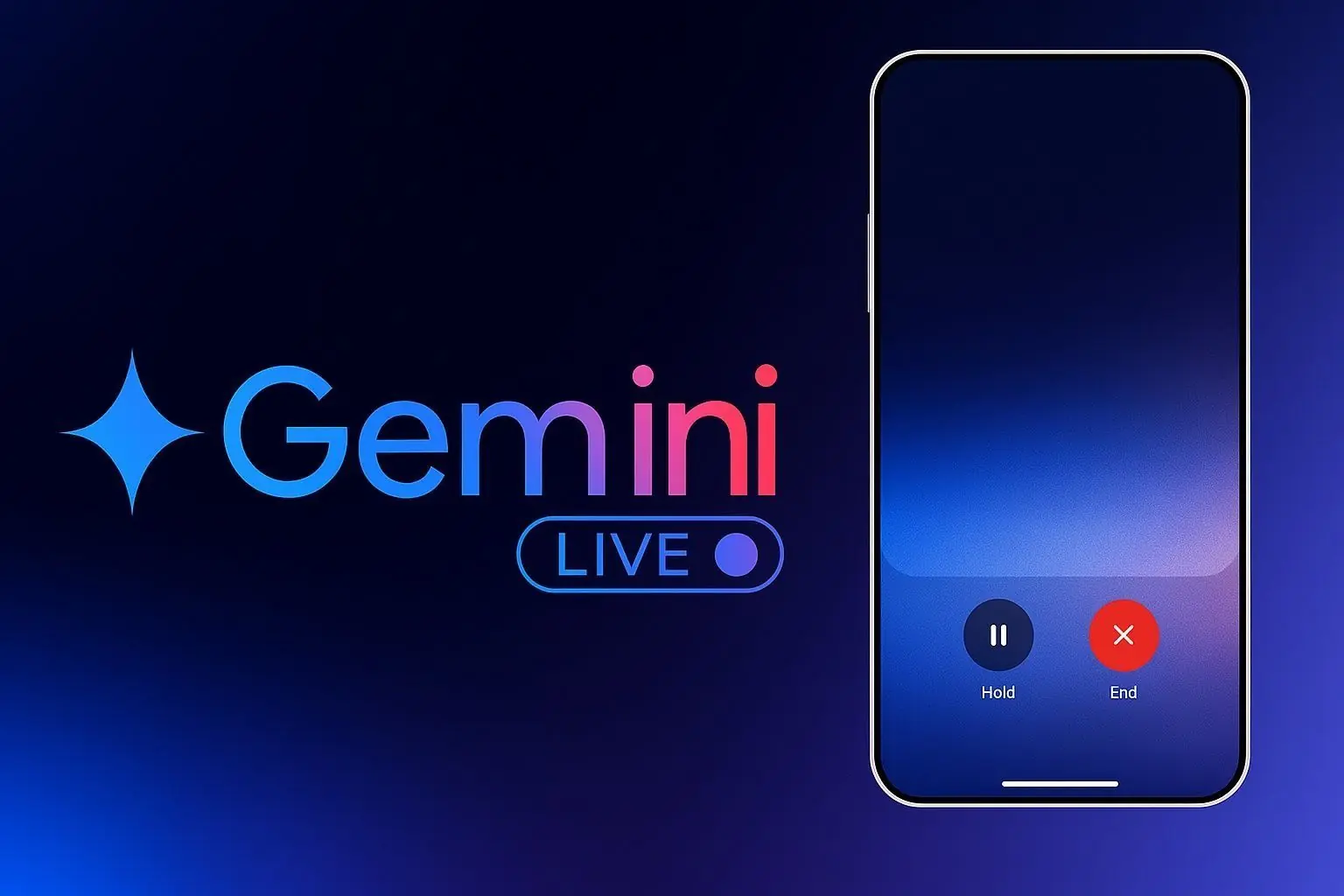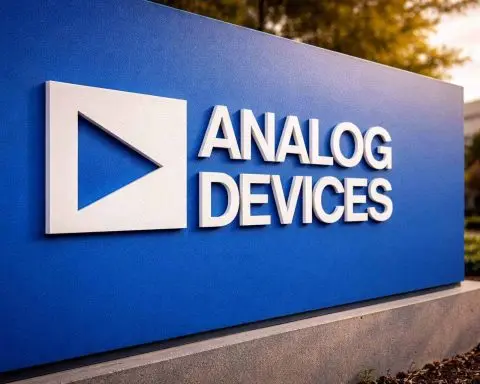- AI Mode in Search expanded to 180 countries in August 2025, powered by Gemini 2.5 with AI Overviews and sign-in free for teens.
- Volvo EX90 demo at Google I/O 2025 showed Gemini handling in-car voice tasks, with Gemini Live enabling free-form conversations and real-time translation across 40+ languages.
- Wear OS 6 introduced the Gemini assistant, and Chrome began a preview of Gemini AI for Pro and Ultra subscribers.
- Gemini CLI was open-sourced in late June 2025, giving free access to Gemini 2.5 Pro via CLI with a 1-million-token context window and up to 60 requests per minute (1,000 per day).
- Gemini Code Assist 2.0 Agent Mode became widely available in VS Code and IntelliJ on August 21, 2025, providing a step-by-step plan across files, an inline diff, persistent chat history, and an auto-approve option.
- Gemini 2.5 Pro topped WebDev and LMArena leaderboards at I/O 2025, and introduced Deep Think, a multi-step reasoning mode with a 1-million-token context.
- Gemini embedding model gemini-embedding-001 reached general availability in late July 2025, supporting 100+ languages and Matryoshka Representation Learning to allow smaller embedding dimensions.
- Gemini 2.5 Flash-Lite reached GA in July 2025 with batch processing and broader regional deployments, and supervised fine-tuning for 2.5 Flash-Lite and Pro was announced on August 8.
- Oracle and Google Cloud announced on August 14, 2025 that Gemini models would be available on Oracle Cloud Infrastructure, including MedLM and integration with Oracle ERP, HR, and CX apps.
- Gemini for Government launched August 21, 2025 offering access to Gemini models on a FedRAMP-authorized cloud for under $0.50 per employee per year, with AI Agent Gallery and connectors to internal data.
Official Product Releases: Gemini Everywhere from Search to Cars
Gemini Powers a Smarter Google Search: In August 2025, Google rolled out its AI Mode in Search to 180 countries, massively expanding beyond the initial U.S./UK/India rollout Techcrunch 9To5Google. This AI Mode – powered by Google’s Gemini AI model – lets users ask complex questions with follow-ups directly in search results Techcrunch. Google upgraded the underlying model to Gemini 2.5 in Search, promising faster, higher-quality AI overviews for tough queries like coding or math Blog Blog. Crucially, teens can now use AI overviews and sign-in is no longer required Blog, reflecting Google’s confidence in Gemini’s safety at scale. “Starting this week, Gemini 2.5 is coming to Search for both AI Mode and AI Overviews in the U.S.,” Google announced Blog, highlighting Gemini as the new brain of Search.
Gemini Hits the Road in Android Auto: Google also began previewing Gemini for Android Auto, replacing the aging Google Assistant with a more conversational AI co-pilot 9To5Google. Ahead of I/O 2025, Google confirmed that cars with Android Auto or built-in Android Automotive will get Gemini support “in the coming months” 9To5Google. The demo at I/O showed a Volvo EX90 using Gemini to handle voice tasks in the car 9To5Google 9To5Google. Gemini adds robust capabilities on the road – from detailed local search (e.g. summarizing a restaurant’s vibe or pulling a child’s soccer game location from Gmail) to hands-free productivity. Drivers can say “Hey Google, let’s talk” to invoke Gemini Live, a free-form conversational mode ideal for brainstorming or Q&A while driving 9To5Google 9To5Google. Notably, Gemini can also translate outgoing messages on the fly – you can speak in one language and have it send the text in another, supporting over 40 languages 9To5Google. Google says Volvo drivers will be among the first with Gemini in-car, though the feature is officially slated for “later this year” to general users 9To5Google. (Analysts have cautioned Google not to rush this rollout – early previews left some testers unimpressed, raising concerns about launching Gemini in cars before it’s fully polished Technewsworld.)
Assistant and Device Integrations: Across Google’s ecosystem, Gemini is steadily replacing the classic Assistant. In 2025, Wear OS 6 on smartwatches introduced the Gemini assistant and even Google TV is scheduled to get Gemini voice support later this year 9To5Google. By late August, Google started rolling Gemini into Chrome as well: a preview allowed Pro and Ultra subscribers to use Gemini AI directly in Chrome on desktop Blog. And on the go, the standalone Gemini app has exploded to over 400 million monthly active users Blog – a clear sign that Google’s strategy of weaving Gemini into daily life is catching on in a big way.
New Features & Capabilities: Agentic AI Mode and Personalized Help
AI Mode Gets Agentic: Your Search Assistant Can Act. Google’s AI Mode (built on Gemini) isn’t just chatting – it’s now acting on your behalf for certain tasks. In August, Google unveiled the first “agentic” feature in Search’s AI Mode: it can find and book restaurant reservations for you Techcrunch 9To5Google. Users simply describe their dining needs (e.g. “dinner for 4 tomorrow at 7pm, Italian with outdoor seating”), and AI Mode uses Gemini to scour multiple reservation platforms (OpenTable, Resy, etc.) for real-time availability that matches those specifics 9To5Google 9To5Google. The result is a curated list of options with direct booking links, saving you from manual searching 9To5Google 9To5Google. Google says this capability – powered by Project Mariner’s live web browsing and partner integrations – will expand to other domains next, like finding local service appointments or event tickets 9To5Google. For now, it’s an experiment available to U.S. subscribers of Google’s Ultra plan (the $249.99/mo tier) via Labs Techcrunch. This marks a huge step toward “agentic AI” in consumer search: instead of just answering questions, Gemini can take steps to help users accomplish goals in real time.
Smarter, Personalized Search Results: Another new Gemini-powered perk in AI Mode is personalized search recommendations. Google announced that AI Mode will now tailor some answers (starting with dining and leisure queries) to your individual tastes Techcrunch. For example, if you ask for a quick lunch spot, the AI might suggest eateries based on your past searches and Maps history – knowing you love Italian or vegan options with outdoor seating Techcrunch 9To5Google. Google emphasizes that this personalization uses your opted-in data from search and location history, and you can adjust what context is shared 9To5Google 9To5Google. It’s an opt-in Labs feature, but it showcases Gemini’s ability to leverage user context for more relevant, “know-you” answers. Essentially, Search is becoming more like an AI concierge that learns your preferences over time Techcrunch.
Collaborative and Multimodal Interactions: Google is also making Gemini’s AI more collaborative. In AI Mode, a new “Share” button lets you generate a unique link to an AI conversation and share it 9To5Google. The recipient can click and continue that exact conversation, asking their own follow-ups 9To5Google. Google envisions use cases like trip planning or group research, where one person’s AI-assisted query can be seamlessly shared with friends or coworkers to build on Techcrunch 9To5Google. Notably, Google has allowed similar sharing in the Gemini app (public chat links), and now it’s part of Search 9To5Google. On other fronts, multimodal capabilities are growing: Gemini 2.0 and above can handle visuals in queries. Google’s I/O demos showed the model answering questions about images and powering features like Google Lens and Shopping with AI. And behind the scenes, Google hints that Gemini is evolving into a “world model” – essentially an AI that can plan and imagine new scenarios by simulating aspects of the world, much like humans do Blog Blog.
Developer Tools, APIs, and SDKs: Gemini Opens Up
Gemini CLI – AI in Your Terminal (Open-Source and Free): One of the most exciting August developments was Google’s push to empower developers with Gemini. In late June, Google open-sourced the Gemini CLI, a command-line AI assistant that brings the full power of the Gemini 2.5 Pro model right into developers’ terminals Devops Devops. This isn’t just another code autocomplete – Gemini CLI can understand code, execute shell commands, edit files, and even run web searches without leaving the terminal Devops Devops. In other words, it acts like an AI pair-programmer and a command-line agent. Google’s generosity with this tool made waves: any developer with a Google account gets free access to Gemini 2.5 Pro via CLI, with an enormous 1 million-token context window and up to 60 requests per minute (1,000 per day) at no cost Devops. “This is easily the most generous free tier in the industry,” one DevOps analyst noted, highlighting how it democratizes access to cutting-edge AI for individual developers and students Devops. Within weeks of launch, Gemini CLI caught fire in the open-source community – Google reports over 70,000 stars and 2,800 pull requests on the project so far Googleblog Googleblog. The community has contributed dozens of improvements, making this AI agent even more robust.
Continuous Upgrades: GitHub Actions and IDE Integration: In August, Google announced major updates to Gemini CLI and its coding assistant suite. Gemini CLI GitHub Actions launched in beta, allowing the AI to autonomously assist with software development workflows on GitHub Googleblog. This means Gemini can now act as a coding teammate in your repository – triaging issues, suggesting fixes, even generating pull requests for routine tasks Googleblog. It’s like having an “autonomous AI developer” that you can tag in to handle bug fixes or add small features. Google also deepened Gemini CLI’s integration with VS Code: the CLI tool can now detect which files you have open and read selected text in your editor, enabling context-aware suggestions that are specific to your current coding task Googleblog. Developers just need the latest Gemini CLI (v0.1.20+) and a one-time setup to link it with VS Code Googleblog. This blur between CLI and IDE means whether you’re typing a prompt in a terminal or chatting in VS Code, Gemini has full awareness of your project context. Additionally, Google added support for custom slash commands – letting developers create reusable prompts/commands to streamline frequent tasks Googleblog. All these enhancements aim to boost developer productivity by making Gemini’s help more flexible and seamlessly integrated into existing workflows.
Gemini Code Assist 2.0 – Agent Mode in Your IDE: On August 21, Google announced a major update to Gemini Code Assist, its AI coding assistant for IDEs. The headline feature is that “Agent Mode” is now widely available to all developers in VS Code and IntelliJ Googleblog Googleblog. Agent Mode, previously an experimental feature, transforms coding help into a collaborative, multi-step experience. Instead of one-off suggestions, you can now describe a high-level coding goal, and Gemini will generate a step-by-step plan (e.g. which files/functions to modify) to achieve it Googleblog. You remain in control – reviewing and approving each change – but the AI handles the heavy lifting of boilerplate and tracking dependencies. For example, if you ask to refactor how a shopping cart applies discount codes, Agent Mode will outline all the needed code changes across model, view, controller, and let you approve the edits before applying them Googleblog. Developers who tried it say it saves significant time on tedious multi-file tasks while still “combining the power of AI with your expertise” for better results Googleblog. Google integrated the Gemini CLI under the hood to power this, leveraging its tool execution abilities in the IDE Googleblog. New improvements rolled out for Agent Mode in VS Code include an inline diff view for code edits (so you can see precisely what Gemini changed), persistent chat history for the agent, real-time shell outputs for any commands run, and overall faster UI performance Googleblog Googleblog. On top of that, IntelliJ users got access to Agent Mode on the stable channel for the first time Googleblog. Google’s Code Assist team touts this as a reimagined developer workflow: you can even opt into an “auto-approve” mode, effectively letting Gemini make a series of code changes autonomously, then reviewing them after the fact Googleblog. It’s coding at a higher abstraction – you tell the AI what you need, and it figures out how to do it across your codebase.
APIs, SDKs, and AI for All: Google has continued enhancing the Gemini API and developer platform as well. By mid-2025, Gemini 2.5 Flash-Lite (a faster, lightweight model) became generally available via the API and Google AI Studio Blog. And in August, fine-tuning support for Gemini arrived – developers and enterprises can now perform supervised fine-tuning on Gemini 2.5 models via Vertex AI Google. This is huge for business use cases, as it allows customizing Gemini on proprietary data. Google also released a text embedding model (gemini-embedding-001) to GA in late July Devopsdigest. This model topped the multilingual embedding benchmarks and supports 100+ languages Devopsdigest. It even introduced a nifty technique called Matryoshka Representation Learning (MRL) to let developers choose smaller embedding dimensions (down from the default 3072) to save on storage and speed Devopsdigest. In short, Google is rounding out the Gemini ecosystem with all the pieces developers need: from Agent Development Kits (ADK) and open frameworks integration Googleblog Googleblog, to function calling APIs, to thought summaries that expose the model’s reasoning steps in a structured way for transparency Blog Blog. As one Google PM put it, “we continue to invest in the developer experience,” adding tools like Model Context Protocol (MCP) support for open-source agent frameworks Blog Blog. All these make it easier to build powerful agentic applications on top of Gemini Blog.
Research and Experiments: Smarter, “Thinking” AI
Gemini 2.5 Takes the Lead: Under the hood, Google DeepMind’s researchers have been hard at work, and it shows. In benchmarks and technical evaluations, Gemini 2.5 Pro has emerged as one of the world’s top AI models. At I/O 2025, Google announced that Gemini 2.5 Pro is now the world-leading model on key leaderboards like WebDev (coding tasks) and LMArena (language model reasoning tests) Blog. It also reportedly outperformed all rivals on a comprehensive set of learning science principles Blog. In plain terms, Gemini isn’t just big – it’s demonstrating state-of-the-art performance in coding, reasoning, and knowledge tasks, often surpassing GPT-4 and other competitors in internal tests. Google attributes these gains to significant research advances: more efficient training, better fine-tuning, and massive “thinking” improvements.
“Deep Think” Mode and Chain-of-Thought: One experimental feature drawing buzz is called Deep Think, an enhanced reasoning mode for Gemini 2.5 Pro Blog. Instead of the model blurting out an answer in one go, Deep Think lets it reason through a problem with multiple steps internally before responding. In effect, the model spends more inference time “thinking” – akin to doing scratch work or running sub-computations – which leads to more accurate answers on complex tasks Googleapis. This idea of allocating a “thinking budget” at inference time was refined through reinforcement learning, and allows Gemini to tackle highly complex math, coding, or logical problems that stumped it before Blog. Google first teased Deep Think in leaks, and by May it was confirmed as an experimental setting for 2.5 Pro Blog. Internal research papers show dramatic performance boosts when Gemini is allowed to use these multi-step chains of thought Googleapis Googleapis. It’s an approach that echoes how humans solve problems (taking time to reason) – and positions Gemini 2.5 Pro as a “thinking AI” rather than just a quick autocomplete. Google has even extended this to handle enormous contexts: Gemini models can now ingest 1 million tokens of context (with 2 million token support coming), enabling them to reason over truly long documents or multi-step scenarios without losing the thread Googleblog.
Security and Transparency by Design: As models get more powerful, Google is also investing in safety research for Gemini. The 2.5 series introduced advanced security safeguards – for example, Gemini 2.5’s architecture significantly improved resilience against prompt injection attacks when using tools Blog. One novel idea: Gemini’s new “thought summaries” feature. Rather than expose a raw chain-of-thought (which can be messy or even reveal sensitive instructions), Gemini creates an organized summary of its reasoning steps with headers and key details about any actions taken Blog. These thought summaries are now available through the Gemini API and Vertex AI for developers and auditors Blog. It’s a way to peek under the hood of the AI’s mind in a controlled fashion – helpful for debugging and trust. Google is also exploring standards like the Model Context Protocol (MCP) to integrate external tool use in a safe, transparent way Blog, and even budgeting systems to limit how far an autonomous agent can go without approval Blog. All these are part of Google’s responsible AI measures, ensuring that as Gemini becomes more agentic, it remains aligned and under human control.
Beyond Text – Multimodal and Creative AI: August 2025 also saw strides in multimodal generative AI from Google DeepMind. While not all under the “Gemini” name, these tie into the Gemini ecosystem. Google’s latest image model, Imagen 4, launched with remarkable photorealism and detail (up to 2K resolution) Blog Blog, and notably Imagen 4 is accessible in the Gemini app for Pro/Ultra users Blog. This hints that Gemini app is becoming a central hub not just for chat, but for image generation and beyond. Likewise, Lyria 2, the music generation model, was integrated such that creators on YouTube Shorts and enterprises on Vertex AI could compose music with AI Blog Blog – and it’s available through the Gemini API in Google AI Studio as well Blog. Google even unveiled Flow – an AI filmmaking tool using DeepMind’s models for generative video – to Pro/Ultra subscribers Blog. These experimental tools show Google leveraging its multimodal model portfolio in sync with Gemini. On the research front, Google introduced Gemini Diffusion, described as a text generation model that uses a diffusion approach (analogous to how image diffusers work) Blog. It’s an unconventional technique for text AI, converting “random noise to coherent text or code” and could yield new ways to control text generation. All told, the research and experimental side of Gemini is vibrant – aiming for more powerful reasoning, better transparency, and cross-modal creativity, keeping Google at the cutting edge of AI development.
Enterprise Solutions and Business Updates: Gemini Goes to Work
Oracle Partnership: Gemini Comes to OCI Cloud. In a significant enterprise move, Google Cloud and Oracle announced a partnership on August 14, 2025 to offer Google’s Gemini models via Oracle Cloud Infrastructure (OCI) Oracle. This means Oracle’s enterprise customers can directly access Gemini 2.5 and future Gemini family models through Oracle’s Generative AI services, backed by integration with Google’s Vertex AI Oracle. Thomas Kurian, CEO of Google Cloud, highlighted that “leading enterprises are using Gemini to power AI agents” across use cases, and now Oracle customers can tap into these leading models within their own Oracle environments Oracle. The partnership plans to make all sizes of Gemini available, including specialized offshoots for video, image, speech, music, and even domain-specific models like MedLM for healthcare Oracle. Oracle will also integrate Gemini into its popular business applications (ERP, HR, CX apps), giving enterprises a broad choice of where to deploy AI Oracle. Oracle Cloud Infrastructure’s leader Clay Magouyrk said this collaboration brings “powerful, secure, and cost-effective AI solutions” to help customers innovate Oracle. In essence, Google is aggressively pushing Gemini into the enterprise cloud market, using partners to reach more customers. By piggybacking on Oracle’s presence (especially in industries like finance and government), Google gets Gemini in front of organizations that might otherwise default to Azure/OpenAI or other AI providers. It’s also a shot at Amazon – showing that two big rivals can team up to counter AWS’s AI offerings.
Gemini in Vertex AI – Fine-Tuning and Agents for Enterprises: Google’s own cloud, Vertex AI, continued to mature its Gemini offerings through August. Notably, Vertex AI enabled supervised fine-tuning for Gemini 2.5 Flash-Lite and Pro models on August 8 Google. This lets businesses customize Gemini with their proprietary data while keeping data private – a must-have for enterprise adoption. Google also expanded Gemini’s availability: by July, Gemini 2.5 Flash-Lite was GA with support for batch processing and more regional deployments Google, and Gemini 2.5 Pro was on track for GA in stable production use by end of August Blog Blog. In other words, Gemini’s most capable models were moving from preview to fully supported status on Google Cloud, signalling readiness for mission-critical workloads. Moreover, Google doubled down on agentic AI in enterprise settings. At Cloud Next 2025, the Vertex AI Agent Engine was unveiled as a platform to deploy AI agents with enterprise controls (security, compliance, scaling) Google Google. By August 21, Agent Engine added features like private network deployment, customer-managed encryption keys, and HIPAA support Google Google – showing Google’s focus on enterprise-grade security for AI agents that can handle sensitive data. For example, a bank could run a Gemini-powered agent within a private cloud, with full encryption and compliance, using Agent Engine rather than a public chatbot. Google is essentially saying: Gemini is ready for work, whether it’s summarizing internal documents, powering customer service bots, or automating business processes, and it can be done with the robust controls IT departments require.
Gemini for Government: In a bid to bring AI to the public sector, Google Public Sector launched “Gemini for Government” on August 21 Google. This comprehensive package offers U.S. government agencies a suite of Google’s AI tech – all centered on Gemini models – in a secure, discounted bundle. It includes access to Gemini models on Google’s FedRAMP-authorized cloud, plus Google’s agentic solutions like AI-powered enterprise search, NotebookLM for research, generative image/video tools, and even pre-built “AI agents” for tasks like deep research and idea generation Google. The pricing was almost symbolic (under $0.50 per employee per year) Google, clearly aiming to drive rapid adoption. A GSA official praised the move, calling it a “comprehensive Gemini for Government AI solution” that will help agencies “optimize workflows and create a more efficient, responsive government” Google. Key to this offering is that agencies can use Google’s AI Agent Gallery or build their own agents, with connectors to their internal data, all while maintaining control via user access controls and multi-agent management tools Google. In short, Google is positioning Gemini as the go-to AI for government tasks – from analyzing databases to assisting citizens – under a framework that meets strict government security and procurement standards Google Google. This move not only has business significance (countering Microsoft’s dominance in government contracts) but also underscores Google’s message that Gemini is versatile and secure enough for even the most sensitive environments. With these enterprise and public sector pushes, August 2025 was the month Google loudly declared that Gemini isn’t just a research project or a chat demo – it’s open for business, ready to drive real productivity.
Expert Commentary and Industry Insights
Google’s rapid Gemini rollout has drawn extensive commentary from industry experts, with reactions ranging from excitement to cautious optimism. Many analysts view Gemini as Google’s ace in the AI race, noting that the company’s strategy of tightly integrating Gemini into search, cloud, and devices could give it an edge over rivals. Forrester Research dubbed Google’s approach “the most comprehensive agentic AI stack” in the industry, highlighting how agents are now “first-class citizens” on Vertex AI and across Google’s platform Forrester. In other words, Google isn’t just offering a big model; it’s offering an entire ecosystem for AI agents – something competitors are scrambling to match. This full-stack approach (model + tools + integrations) has led experts to predict that Gemini will be the foundation of Google’s AI strategy for years to come Forbes.
There’s also recognition that Gemini is pushing boundaries in important ways. AI researcher Sam Witteveen pointed out that Gemini 2.5 Pro’s 1M+ token context and “thinking” abilities are game-changers for complex tasks, enabling use cases (like deep codebase analysis or lengthy legal document review) that were impractical with earlier models Googleblog. Energy efficiency has been another talking point. Google recently shared that Gemini queries consume far less energy than before – roughly 0.24 Wh per query, “less than 9 seconds of TV” – making it ~33× more efficient than some predecessors Fortuneindia. This addresses a growing concern about AI’s carbon footprint and shows Google leveraging its research (and custom TPU hardware) to optimize Gemini for sustainable scaling.
However, experts also urge some caution. Longtime tech analyst Rob Enderle noted early on that Google’s strategy of previewing Gemini in critical applications (like car infotainment via Android Auto) before it’s fully proven could backfire if users encounter glitches Technewsworld. “Google has started previewing Gemini for Android Auto before it is ready, and users aren’t becoming fans,” Enderle observed, arguing that a few bad experiences could sour public perception. In essence, Google must ensure Gemini delivers on its promises out in the real world – not just in demos – to maintain trust. Competitive analysts also note that the true test is still to come: OpenAI, Anthropic, and newcomer xAI are all gearing up for their next-generation models (GPT-5, Claude 3, etc.), and the AI landscape could shift quickly. A report from TestingCatalog pointed out that Gemini’s progress in mid-2025 appears timed to counter big rival launches, with Google likely positioning Gemini 3.0 as a direct answer to whatever OpenAI unveils next Testingcatalog. The AI arms race is far from over, and while Google has made a loud statement with Gemini’s August upgrades, it will need to continuously innovate to keep the lead.
Overall, the sentiment in the tech community is that Google has hit a new stride with Gemini, showing a level of unified vision (between Google and DeepMind teams) that was previously missing. By weaving Gemini into practically every product and service, Google is effectively staking its future on this AI. As one analyst quipped, “Google is not just integrating Gemini into Search – it’s integrating it into everything.” The consensus is that if Google can execute well, Gemini could cement Google’s dominance in the next era of computing, much like Google Search did in the web era. But the stakes are high: any stumble in alignment, quality, or public trust could open the door for competitors. For now, August’s developments have put Google and Gemini squarely in the AI spotlight – and the world is watching closely.
Leaks, Rumors, and What’s Next for Gemini
Even as Google touts Gemini’s current capabilities, the rumor mill is buzzing about what comes next. In early July, eagle-eyed developers spotted references to “Gemini 3.0 Flash” and “Gemini 3.0 Pro” in the public code repository of the Gemini CLI tool Testingcatalog Testingcatalog. This leak strongly suggests that Google DeepMind is well into development of Gemini’s next major version, presumably Gemini 3.0, despite no official announcement yet. The code mentioned a “gemini-beta-3.0-pro”, indicating internal testing of a Pro-grade model that would succeed the current 2.5 Pro Testingcatalog. Such a naming jump (2.5 to 3.0) hints at a significant upgrade. One speculation floating around is the codename “Kingfall” – a mysterious model that was topping some early test charts. Insiders aren’t sure if Kingfall refers to an early Gemini 3 prototype or a souped-up variant of 2.5 Pro with enhanced Deep Think mode Testingcatalog. Interestingly, “Deep Think” was originally rumored from leaks as a key feature of the next-gen model for advanced chain-of-thought reasoning on the web Testingcatalog. Now that an experimental Deep Think exists in 2.5 Pro, it’s possible Gemini 3.0 will double down on that, making reasoning and tool use even more powerful and seamless.
Why the hurry towards Gemini 3.0? One reason could be competition. The leak’s timing was notable – “just ahead of major competitor announcements” like xAI’s Grok-4 and the anticipated OpenAI GPT-5 Testingcatalog. This suggests Google may be aiming to debut Gemini 3.0 in late 2025 to preempt or respond to rivals, ensuring it keeps the performance crown. Enthusiasts on Reddit have speculated a limited preview of Gemini 3.0 could drop by October 2025, perhaps at an event or as an upgrade for Ultra subscribers, with a full launch in early 2026. Google hasn’t confirmed any of this, but the pieces line up: DeepMind’s CEO Demis Hassabis previously teased that Gemini (as a project) was “multi-modal from the ground up” and poised to surpass GPT-4 by combining techniques from AlphaGo. A Gemini 3.0 might fulfill that promise, potentially introducing new capabilities like video generation or even more “agency” in how the model works with tools and plugins.
Speaking of multimodal, Google gave a sneak peek of Gemini’s future on AR glasses. At I/O, they showed how Gemini could power an Android XR headset and smart glasses in development Blog Blog. In one demo, a user wearing prototype glasses could ask Gemini to message friends, schedule appointments, get turn-by-turn navigation, or translate conversations in real time – all via voice and visual overlays Blog Blog. This hints at a future where Gemini becomes an ever-present personal assistant, not just in phones or PCs, but literally in your field of view. Google has trusted testers trying out Android XR glasses with Gemini and is partnering with brands like Ray-Ban’s parent (Luxottica) and Warby Parker to design frames that people would actually wear Blog Blog. While these products aren’t out yet, it’s a clear preview that Google sees Gemini as the AI that will eventually live in AR devices, helping users with tasks hands-free in the real world.
Another “coming soon” project is Project Astra, Google’s codename for a universal AI assistant prototype. Think of it as the next-gen Google Assistant infused entirely with Gemini’s smarts. At I/O, Google showed how Project Astra can have extended memory, handle more natural conversations (with its own synthesized voice), and even control your computer to perform tasks Blog. For example, an Astra demo acted as a conversational tutor, walking a student through math problems step by step and drawing diagrams on the fly Blog. Google hinted that capabilities from Astra will make their way into Gemini Live and future products later in the year Blog Blog. In fact, an experimental “Live API” for developers is expected, which would let third-party apps harness Gemini’s agentic functions (like controlling apps or remembering user context over long periods) Blog. All of this points to a near future where Gemini becomes more than a Q&A bot – it becomes a proactive, personalized digital assistant spanning all your devices and apps.
Lastly, on the rumor front, there’s chatter about Gemini Ultra – not a model, but the subscription tier. Google’s $250/month Ultra plan currently grants access to experimental features (like the agentic restaurant booking) and higher usage limits. Some leaks suggest Google might introduce exclusive Gemini model versions for Ultra (perhaps a 3.0 beta or a multimodal version with vision) to entice power users and enterprises. Also, keep an eye on third-party “plugins” or connectors: Google’s quietly been adding support for things like a URL retrieval tool (GA as of Aug 18) Googleblog, and enterprise connectors (e.g. a recent leak about Browserbase and others integrating with Gemini Blog). This looks similar to OpenAI’s plugins – allowing Gemini to fetch info from designated APIs or databases. By opening Gemini to external tools in a controlled way, Google could dramatically expand its capabilities (imagine Gemini booking flights or querying SAP databases directly).
In summary, the roadmap for Gemini hints at an AI that is ever more powerful, integrated, and autonomous. If August 2025 was any indication, we can expect Gemini 2.5’s achievements to be merely the foundation. Gemini 3.0 looms on the horizon with promises of even richer reasoning and multimodal prowess Testingcatalog. Google is pairing these advances with real-world deployment in everything from cloud partnerships to government projects. The leaks and previews suggest a not-so-distant future where Gemini acts as a ubiquitous AI assistant – one that you can talk to in your car, consult in your glasses, collaborate with in your code editor, and rely on at work – all seamlessly. As one commentator noted, “Google isn’t just trying to match ChatGPT. With Gemini, it’s aiming to leapfrog – to redefine how we interact with information and accomplish tasks” Testingcatalog. Time will soon tell how successfully they pull it off, but one thing’s clear after this whirlwind month: Gemini has arrived, and it’s aiming for the stars.
Sources:
- Google Search Blog – “Expanding AI Overviews and introducing AI Mode” Blog Blog; Google I/O 2025 announcements Blog Blog
- TechCrunch – “Google’s AI Mode expands globally, adds new agentic features” (Aug 21, 2025) Techcrunch Techcrunch
- 9to5Google – “Google AI Mode expanding to 180 countries, getting agentic restaurant finder…” 9To5Google 9To5Google; “Gemini coming to Android Auto…” 9To5Google 9To5Google
- Google Cloud Blog – “Oracle to Offer Google’s Gemini Models to Customers” (Press release, Aug 14, 2025) Oracle Oracle; “Introducing ‘Gemini for Government’” (Aug 21, 2025) Google Google
- Google Developers Blog – “What’s new in Gemini Code Assist” (Aug 21, 2025) Googleblog Googleblog; “Building agents with Google Gemini (ADK)” Googleblog
- DevOps.com – “Google Adds Gemini CLI to AI Coding Portfolio” Devops Devops
- Google DeepMind Blog – “Gemini 2.5: Our most intelligent models are getting even better” (May 20, 2025) Blog Blog
- TestingCatalog – “Gemini 3 references found in code hint at next AI model” Testingcatalog Testingcatalog
- DevOpsDigest – “Gemini Embedding GA in Vertex AI” (July 28, 2025) Devopsdigest Devopsdigest
- Google Cloud Vertex AI Release Notes Google Google and Google Research announcements Blog Blog.









